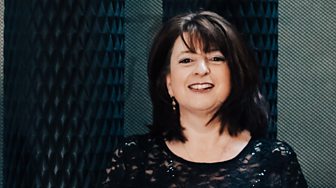Instrumental Insights: Beverley Wescott, Violin
Take a moment to hear the stories of our brilliant musicians.
麻豆约拍 NOW: Hi Beverley! Thanks so much for taking part in Instrumental Insights. Let’s begin by discovering how you became a violinist…
Beverley Wescott: I spent my childhood in Zambia where, with no television and limited radio access, music came very much in its live form as part of home entertainment. We had a piano, which my mum played very well and, together with my dad, spent many hours arranging music scores for local theatre productions, usually a very British variety type show or Christmas pantomime!
麻豆约拍 NOW: What a brilliant introduction to music – what other musical memories from your childhood do you have?
Beverley Wescott: We had a record player and about four records that I remember, which included the Tchaikovsky violin concerto with David Oistrakh and Kenny Ball and his Jazzmen!
麻豆约拍 NOW: So, did those records prompt you to pick up the violin?
Beverley Wescott: I didn't actually start on the violin. It was my dad's love of the clarinet which saw me, aged 8, at the Lusaka Saturday Music School woodwind department for my first lesson on an instrument I'd never seen or heard before. My future was evidently not as a clarinettist, because after about ten minutes, my teacher decided the first three notes of Three Blind Mice was enough and announced he was off to the bar, which is exactly where my parents found me, disillusioned, when they came to pick me up!
麻豆约拍 NOW: Oh, how disheartening!
Beverley Wescott: Luckily, the string department across the corridor had spaces and the following week, that's where I made some new musical discoveries… mainly that the violin was played under the chin (I was secretly hoping it was a guitar) and that you didn't play different notes by turning the pegs!
BBC NOW: How has playing the violin positively impacted on your life so far Bev?
Beverley Wescott: It would be impossible to list all the positives! Lifelong friends from youth orchestra courses, a whole world of international culture - either from the music itself or from the incredible places on all continents I've visited on orchestral tours. I played my first 'paid gig' when I was twelve - £5, Handel's Messiah, so tangible benefits too!
麻豆约拍 NOW: A paying concert so young – that might be a 麻豆约拍 NOW record! That’s a good start to your career.
Beverley Wescott: I've been lucky enough to have a career in the most exciting, diverse, and unpredictable profession. Highlights from both ends of the musical spectrum include playing at the Eurovision Song Contest ( the last time they ever used a live orchestra) and, more recently, playing Tippet's A Child of our Time at the Proms, as the first live orchestra I ever saw was the African premiere of the piece, in Zambia and conducted by Sir Michael Tippet himself.
麻豆约拍 NOW: Does the instrument you use to perform have any special history or stories behind it?
Beverley Wescott: My violin, which is 41 years old was made for me by Wanna Zambelli, a professor at the Cremona International Violin School and also Italy's first woman violin maker.
麻豆约拍 NOW: If you could speak with your instrument, what would you ask it?
Beverley Wescott: There's not much I don't know about it as I'm the one and only owner but since it's a relatively young instrument, I'd love to turn the clock forward about 200 years so I'd know how it might sound when it's fully matured.
麻豆约拍 NOW: What would you say to encourage young players of your instrument?
Beverley Wescott: Practise! We were all beginners once. Most importantly remember to enjoy music making, no matter how advanced you are.
麻豆约拍 NOW: What do you do when you're not performing for 麻豆约拍 NOW?
Beverley Wescott: I'm a bit of a box-ticker when it comes to hobbies, I'm really curious to know how things are done, whether I could do them and if so, give it a shot. Ticked off are: Flying a plane, cryptic crosswords and puzzles, pot- making on potters wheel, & novelty cake- making. Things to do are: I think I'd like to run a marathon, having spent lockdown getting fitter than I've ever been. I'd also love to learn how to skid a car (on a skid-pan!).
麻豆约拍 NOW: What are you looking forward to about playing with 麻豆约拍 NOW again in the future?
Beverley Wescott: As well as really looking forward to seeing my colleagues socially, in person again, I think we all need to know that the musical world we haven't seen for four months still exists, at least in some part and want to prove that getting things moving again for the sake of the bigger picture, is a good idea.


